Preventing Basement Flooding
If you’ve ever been unfortunate enough to experience basement flooding or basement water damage, you understand how devastating the effects can be.
How to Stop Basement Flooding
Flooding in your basement can cause extreme damage to your home’s foundation.
Basement flooding can also destroy precious objects such as family heirlooms and keepsakes. Plus, the renovation process after flooding can be long and expensive.
If you’re wondering how to prevent basement flooding, there are a few key steps you can take in order to keep your home and belongings safe from extreme water damage.

Properly Clean and Maintain Gutters and Downspouts
Letting the gutters and downspouts build up with debris is a bad habit of many homeowners. This habit can do more than just weigh on your gutters, causing them to detach from your roof over time. Plus, proper gutter and downspout management is the first step in how to prevent basement flooding.
Position your gutter downspouts correctly
If your downspout isn’t properly positioned well away from your home’s foundation, any water and debris flowing through it after rain and snow will pool up against the side of your home. This causes water damage to the foundation and basement.
Make sure your downspout is directing its water flow at least 3 feet away from your foundation. If a trough or downspout extension is needed in order to achieve this distance, it will be a worthwhile investment.
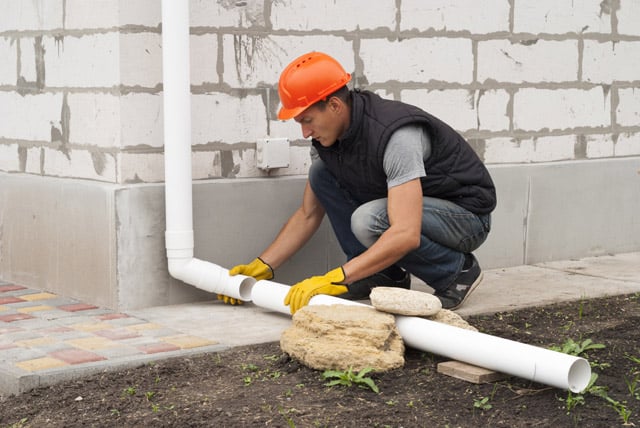
Maintain your gutters
Small tasks like cleaning your gutters and making sure your downspouts are properly routed may seem inconsequential.
However, performing these tasks costs nothing, and in the event of heavy rainfall, it could be the difference between a dry basement and a flooded basement.
Maintain Your Sump Pump
Sumps are naturally constructed pits carved underneath the floor of the basement. The sump pump is designed to route water away from the sump, or basin, and away from your home using a discharge line.
Not only do sump pumps prevent basement flooding, they protect your basement and foundation from other effects of water damage such as mold. However, sump pumps can only work properly if they are maintained regularly.
Periodically check your sump pump for proper function
One of the most common causes of basement flooding is sump pump failure. Be sure to have your sump pump checked if you know a large storm is headed to your region, or if the winter months are approaching.
Investing in a sump pump generator as well as a replacement sump pump to keep nearby can provide peace of mind in the event of a loss of power or pump failure.
Keeping your sump pump well maintained is even more important when you consider the fact that many homeowner’s insurance providers don’t cover flood damage due to broken sump pumps.
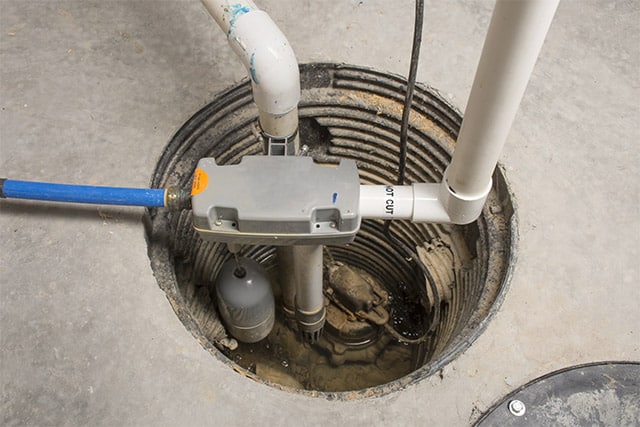
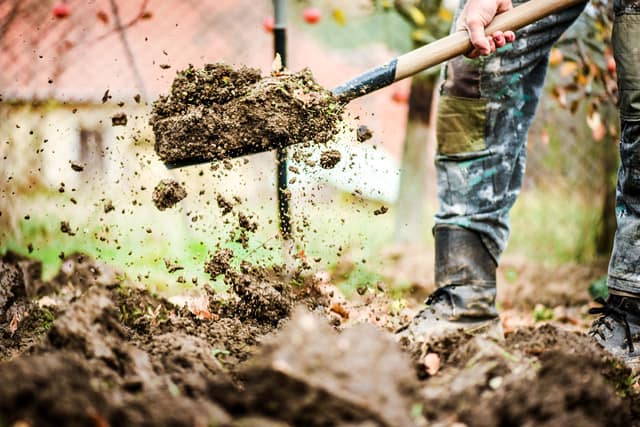
Correct Your Landscaping To Stop Basement Flooding
Allow space between your home’s siding and your mulch
Many homeowners who are concerned with how to stop basement flooding don’t think to consider their landscaping, in particular their gardens.
Mulch is a common substance used in flower beds in order to grow healthy flowers and other plants. However, when landscaping mulch rests against the side of your home, the moisture it absorbs during heavy rains can cause water damage to your basement and foundation.
Generally, a barrier of at least 6 inches is enough to keep your home’s siding safe from excessive moisture in your mulch. Brick buildings are more durable against water, but homes with cement or wooden sidings can be susceptible to damage.
Fix the grade
Adjusting the slope of the soil next to your house will push water away from your home. Many times, homeowners are not aware that the slope of the soil next to their home needs to be slightly sloped away from the structure. There will often be a neutral grade or even a slope towards the house.
It’s time to break out the shovel and rake and fix problem areas. Doing this helps dramatically with avoiding water intrusion into your basement.
Regularly Inspect your Foundation to Prevent Basement Flooding
Those that are wondering how to prevent basement flooding should make a habit of checking the potential flooding area for weakness or flaws. When it comes to basement flooding, a cracked or damaged foundation can be a primary point of entry for excessive moisture.
Make a habit out of regularly checking your home’s foundation for cracks, chips, or preexisting water damage. Also, check the basement walls and floors for any flaws that could make the area susceptible to water leaks.
Any cracks or chips you find should be filled in with epoxy resin. Make sure to call a professional if the cracks worsen, additional ones appear, or any leaking starts to occur.
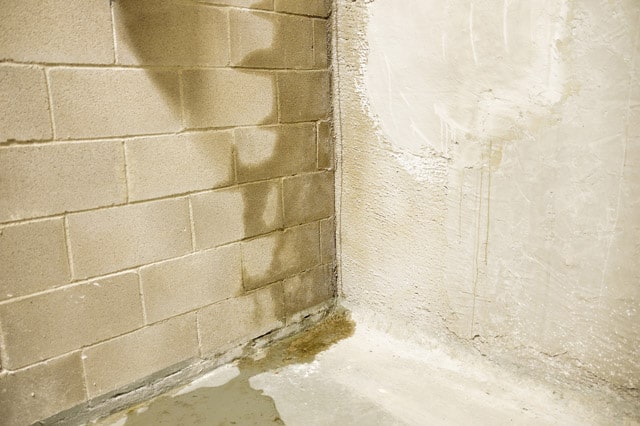
Have your Sewer and Septic Tank Inspected and Cleaned
When it comes to home maintenance, a majority of homeowners tend to overlook the importance of properly functioning sewers and septic systems around your property. When sewers and septic tanks near or below your basement become clogged, they can overflow, leading to a basement flooding that might include more than just water.
Regular maintenance of your nearby sewers and septic tanks can prevent them from backing up and overflowing, keeping your basement and foundation safe in order to prevent basement flooding. Additionally, a well-kept septic system can lengthen the lifespan of your pipes and keep your home’s entire drainage system working smoothly.
Outfit your Basement Windows with Window Well Covers
The most vulnerable spot to take care of is the window if you want to prevent basement flooding. Though many basements don’t have windows, the ones that do tend to be very susceptible to breakage and water damage.
Ask a specialist if your basement window is built to withstand even the heaviest rainstorms or if a window well cover could increase your chances of making it through the rainy season without threat of flooding.
Luckily, those that use their basement as a gym or workspace will still be able to take advantage of natural daylight with a clear acrylic window well cover.
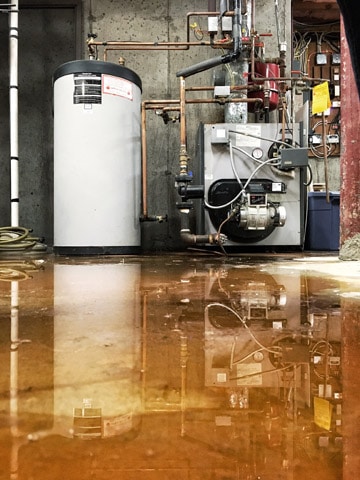
Inspect and/or Replace Your Water Heater
Water heaters present a significant risk of flooding. Over time, water heaters can corrode. You may first notice a small water seep, but if this goes unaddressed, it can result in a catastrophic failure of the unit.
When this happens, significant amounts of water can enter your finished basement, leaving you with a big mess.
To prevent water damage, recognize that water heaters have a useful life and need to be periodically inspected and/or replaced. Doing so will keep your basement dry and avoid you walking downstairs to find standing water all over your floors.
How to Stop Basement Flooding: When in Doubt, Call a Professional
These days, there is a wide variety of information available regarding basement flooding prevention and how to protect your house from destructive water damage.
Additionally, there is a thriving market of DIY tools and equipment available in order to properly outfit your home against flooding and maintain the many appliances your home uses to protect against water damage from the inside.
Should you find yourself faced with a flooded basement, however, it’s important to leave the toughest work to the professionals. A qualified water damage restoration company like MSS Cleaning, can extract flood water, dry the area and get you back to normal life again.
Or Call: 1-720-233-0761
